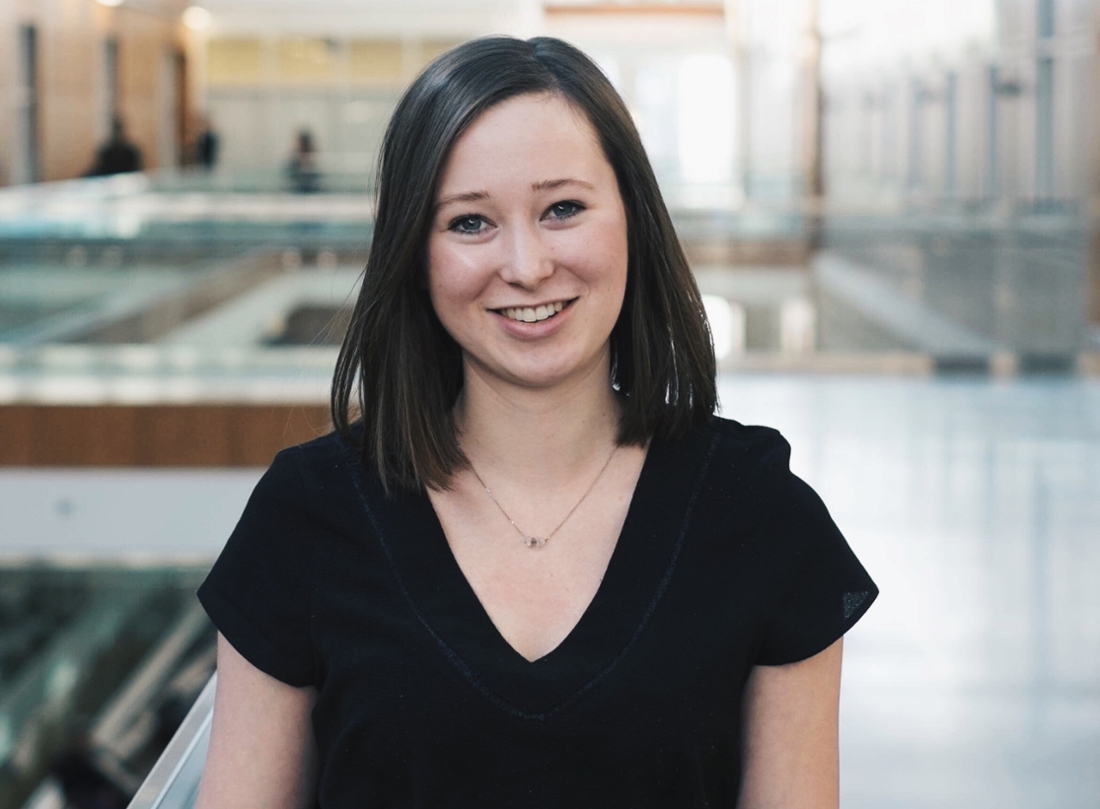
Medical school, advocacy a natural fit for CoM student
It’s been a few months since she was named one of CBC’s ‘Future 40’, but Jacqueline Carverhill’s world hasn’t changed much.
By Marg SheridanBetween school work, and the social and health activism that has helped to define her time at the College of Medicine, she has continued to leverage her interests in health policy through one of her biggest projects, the co-chairing of the annual Health Innovation & Public Policy Conference – an event that attracts nationally renowned speakers.
Although currently on hold due to her demanding schedule as a clerkship student, Carverhill’s work co-founding Grits for Grieving Guys, which combined her interests in palliative care and helping the community, was also one of the reasons for which she was recognized as a ‘Future 40.'
“Grits for Grieving Guys is a cooking class and support group for senior widowers in Saskatoon,” Carverhill explained of the program she helped launch through a Saskatchewan Medical Association program called Fostering Leadership through Innovative Projects (FLIP). “We ran it last winter for the first time and had a group of men come every Saturday, we’d cook a new meal each week and sit down around a table together to talk.”
“We brought in experts in the field of grief and bereavement from the community to help facilitate the support group aspect of it. It has been one of the most meaningful and rewarding projects that I’ve been involved with since starting medical school.”
And involved is the perfect term to use regarding her three years at the CoM so far.
In addition to her work with Grits for Grieving Guys, Carverhill has been a member of the Saskatchewan Medical Student Society (SMSS) where she was the chair of the political advocacy branch and led both provincial and federal advocacy initiatives, as well as a founding member of Students for Upstream.
“I’ve always had an interest in politics and public policy, likely stemming from the significant amount of debate I did in high school," Carverhill continued. “When I did my undergraduate degree I studied both biology and international relations, so I think it was a natural fit when I began medical school to continue to combine these interests.”
Within a few weeks of starting medical school, Carverhill organized a political forum for the federal election that was happening at that time.
“That event opened my eyes to the role that medical students can and must play in advocating for more effective and equitable health policy," she explained. “It has always been a part of my medical school experience from day one and I can’t really imagine medical school without working on an advocacy project on the side.”
As for the CBC award, well that was a new experience in itself.
“I went down to Regina where they had a networking event and presented us all with engraved plaques. They rolled out the red carpet, literally, and filled the CBC studios - so it was really neat!”
